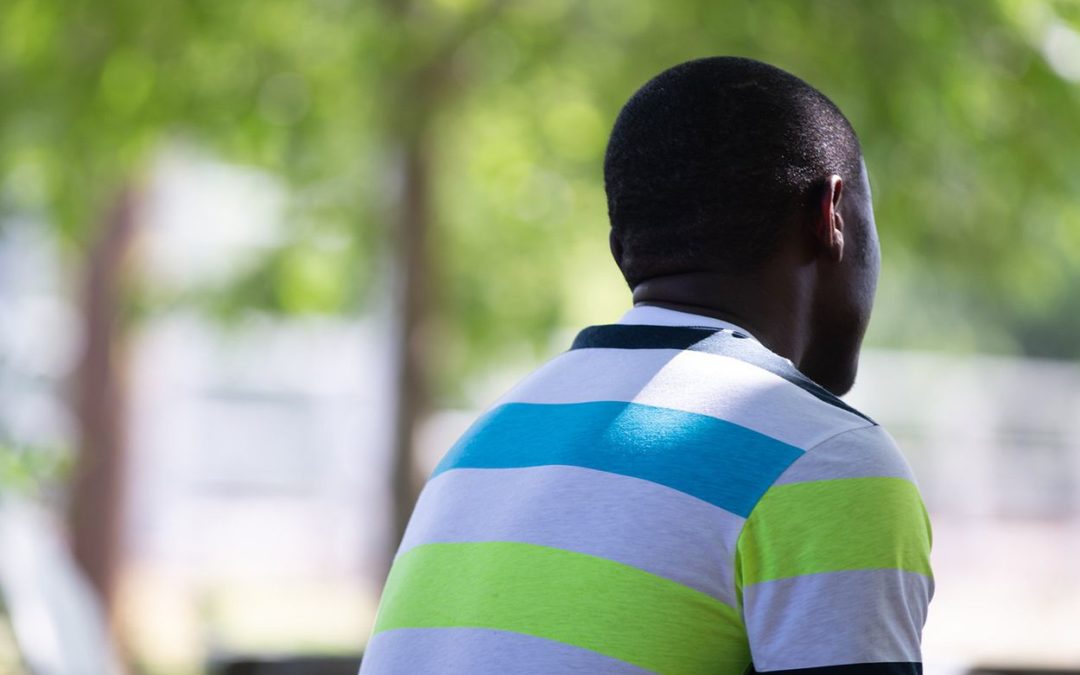
by Alejandra Molina, RNS | Apr 26, 2022 | Commentary, Headline News, Social Justice |

(RNS) — As Miami-Dade County in Florida grapples with a housing affordability crisis, houses of worship are being recruited to build affordable homes on vacant or underutilized church land.
The national nonprofit Enterprise Community Partners on Thursday (April 21) announced $1.3 million in grant funding from the Wells Fargo Foundation that would go toward helping 15 South Florida congregations convert underused church property.
The nonprofit will assist clergy, who may lack the resources or knowledge to cut housing deals, in navigating the development process, negotiating long-term ground lease agreements and vetting development partners, such as architects and designers.
This effort is part of the nonprofit’s Faith-Based Development Initiative that launched in 2006 in the Mid-Atlantic region, where it has helped faith-based organizations create or preserve more than 1,500 affordable homes and one community-based health clinic.
So far, $8.5 million has been committed in a new push to help congregations in Atlanta, New York, Baltimore, Miami and Seattle build affordable housing on their properties.
In South Florida, this money is being made available just as Mayor Daniella Levine Cava in early April declared a state of emergency over housing affordability.
Faith leaders, along with county and housing officials, on Thursday (April 21) gathered at Koinonia Worship Center to talk about the steps congregations could take to build housing on their church land. The gathering was held in partnership with the Collective Empowerment Group of South Florida, a group of local churches that aims to provide homebuyer training and credit counseling services in the area.
David Bowers, vice president at Enterprise Community Partners, said this effort makes “radical common sense,” allowing congregations that are “sitting on a resource” to “be good and faithful stewards.”
“We will share lessons from you with others in cities around the country who are at work as we expand this movement,” Bowers, who is also an ordained minister, said Thursday.
Over the last few years the county has partnered with faith-based organizations to build seven affordable rental developments, said Jorge Damian de la Paz, a representative of the mayor, at the Thursday gathering. These projects stretch across Miami-Dade County, from Miami Gardens down to Richmond Heights.
Citing property records, de la Paz said there are more than 1,220 parcels in Miami-Dade County currently being used exclusively for religious purposes. This includes churches, synagogues and mosques. In total, houses of worship sit on at least 95 million square feet of land in Miami-Dade County, he said.
“Religious organizations, in aggregate, are some of the largest owners of land in Miami-Dade County,” de la Paz said.
“Some of these lots could potentially be used to build affordable housing or … some type of community facility to serve congregants in a new way and generate additional revenue to the organization,” he said.
One example is Second Baptist Church of Richmond Heights. In 2016, the church opened the Reverend John & Anita Ferguson Residence Apartments, which provides 79 units of affordable housing for seniors.
The Rev. Alphonso Jackson, pastor of Second Baptist Church, helped oversee the project, which was a vision of the former pastor, the Rev. John Ferguson, who secured the land adjacent to the church.
“It was our desire to complete the vision he had,” Jackson said on Thursday.
Jackson said they sought to secure the necessary funds to build the project in a way that “wouldn’t be a burden to the church.” They formed a community development corporation and dealt with housing bonds, tax credits and grant funding.
Although it was years in the making, “it ended up being a wonderful project,” Jackson said.
“It adds to the community. It increased the property value of the community. It is not an eye sore. It is something very nice … We are very proud of it,” he said.
READ THIS STORY AT RELIGIONNEWS.COM

by Bob Smietana, RNS | Jan 11, 2022 | Commentary, Headline News |
MILWAUKEE (RNS) — Asher Imtiaz is the kind of person who always seems to be wandering into a great story.
Like the time in 2017, when the Pakistani American computer scientist and documentary photographer walked into a Target in Nebraska and ended up being invited to a wedding thrown by Yazidi refugees from the Middle East.
Imtiaz had gone to Nebraska to shoot pictures of life in small-town America in the age of Trump, far from the country’s urban centers. Among his portfolio from the time is another Yazidi family, dressed in patriotic garb and heading to a Fourth of July picnic.
“I went to see America and found these new Americans,” said Imtiaz at a coffee shop on the north side of Milwaukee last year.
Imtiaz fits right in at Eastbrook Church, a multi-ethnic congregation where he serves as a volunteer leader at an outreach ministry for international students at the University of Wisconsin-Milwaukee campus nearby.
Eastbrook is a bit of an outlier these days, a place where refugees, immigrants and international students are welcome at a time when American evangelicals are increasingly suspicious of newcomers to the United States.
According to data from the Public Religion Research Institute’s Immigration Policies Survey, nearly 6-in-10 (59%) white Evangelical Protestants agreed with the statement “Immigrants are invading our country and replacing our cultural and ethnic background.” By contrast, only 31% of Americans overall agreed with that statement.
At an outdoor service at Eastbrook in August, Imtiaz wandered through the congregation greeting friends and exchanging hugs as a diverse worship team led the congregation through a mix of traditional and contemporary songs. The service started with the singing of the traditional Doxology, which begins, “Praise God from whom all blessings flow,” followed by songs like “You Are Good” and “Way Maker,” by Nigerian gospel singer Sinach.
That was followed by a reading of Psalm 23 in English, Spanish and Yoruba.
The church was founded in 1979 by members of Elmbrook Church, a megachurch about 20 miles to the west. Elmbrook’s then pastor was hoping to get church members more involved in the communities where they lived. Dubbed Eastbrook, it was led for three decades by former missionaries Marc and Nancy Erickson. For the past 11 years the pastor has been Matt Erickson (no relation).
The proximity of the university campus led to an intentional outreach to college students, especially those from overseas, which continues four decades later.
Every fall, church members give tours of Milwaukee to newly arrived international students, who are then invited to have dinner at the homes of church members. Many of those students come from Christian backgrounds and are seeking to connect with a church, said Imtiaz, who was raised as an Anglican in Pakistan, a country where only about 2% of the population is Christian.
Those students are also looking for friendship. Imtiaz pointed to a 2012 study of international students in the South and Northeast, which found that 40% of those students had no close friendships with Americans. Through the outreach at Eastbrook, their students often make friends in their first days in the country. Many of them end up spending holidays with church members and making longtime friendships.
“It’s basically providing a home away from home,” he said.
The church also operates an International Community Center on the south side of the city, where a number of recent refugees and other immigrants have settled. The center teaches English as a Second Language classes and provides support with issues like housing and education. About 30 people will end up dropping by the center most days, Dan Ryan, senior director of mission at the church, said in an interview in early January 2022.
Ryan said the church is helping resettle some recent refugees from Afghanistan. He understands that some of his fellow evangelicals around the country are resistant to the idea of resettling refugees. Since refugees are here in the States, he said, churches need to reach out in love.
“Yes, have your political ideas,” he said. “But don’t lose sight of the people involved.”
Ryan said that the church and the center are very open about the Christian motivations for their outreach efforts. But they also steer clear of proselytizing. Their main goal, Ryan said, is to show love and welcome to their new neighbors, a point echoed by Matt Erickson.
“It’s a ministry of care and concern and tangible ways of loving people welcoming people,” he said.
“These folks are treasured by God and valuable in his sight,” said Erickson, who spent several years on the staff of World Relief, a Christian organization that helps resettle refugees in the United States.
While he’s not shy about talking about faith, Imtiaz doesn’t see himself as a “Christian photographer.” He said that Christians in the United States sometimes see their neighbors as “projects” or prospective converts, rather than seeing them as people first. He takes a slower approach, trying to befriend people and see them as a neighbor who is valuable in God’s sight.
As a photographer, Imtiaz practices something he calls “God at ‘I’ level” — trying to connect with the people he photographs as human beings, long before taking their picture.
Like many churches in the United States, Eastbrook has felt the pressure of the country’s political polarization inside the church. Erickson said that Eastbrook has always tried to bring together people from different backgrounds, as task made more difficult by the broader conflicts in American public life over race, politics and increasingly, COVID-19.
He often turns to a verse from the New Testament Book of Galatians, in which the apostle Paul urges his readers to “bear one another’s burdens.”
“The last couple of years have given us lots of opportunities to live that out,” he said. “Sometimes we are doing it well and sometimes we are not. Part of being a body is that we have to learn to talk with each other, and we have to learn how to understand each other.”
During his sermon at the outdoor service in August, Erickson urged church members to ground their lives in the Bible and its message of love, rather than on the noise of the outside world. Without that solid foundation, he said, their lives won’t reflect the kind of love God wants them to share.
“Brothers and sisters, I just want to ask us today, are we giving more time to the news, are we giving more time to social media than we are to the Word of God and letting it sink into our lives?” he said. “I’m not trying to be legalistic. I’m just sick of us being brainwashed and want us to stand in the kingdom.”.
Among the people at Eastbrook that Sunday were Mahitha Voola and Manna Konduri, both originally from India, who came to Eastbrook through the church’s outreach to international students and ended up staying after graduation.
From the beginning, people at the church made them feel at home.
“They say, ‘Oh, taste and see the Lord is good,’” Voola said, quoting a verse from the Psalms. “I’ve tasted that love of God through these people and through the church. I feel very blessed to be part of it.”
The two said they hope to pass on the welcome they have received.
“Today we are the recipients of this love,” Konduri said. “Tomorrow, maybe we will be the ones to show that to someone else.”
Eastbrook’s ethic of welcome, Imtiaz said, has been as much a boon for him as it is for the newcomers.
He’s particularly interested in documenting the story of immigrants and refugees, whom he likes to refer to as “new Americans.” For several years he lived in an apartment complex where newly resettled refugees were living so that he could get to know them. He ended up photographing a number of neighbors after building friendships. When he got COVID-19 — a mild case — one of his former neighbors, a woman from Iraq, would send him soup.
Imtiaz hopes that his photographs and work at the church will inspire people to get to know their neighbors, no matter where they come from.
“If I can go to Nebraska and go to Target and meet 400 Yazidis, anybody else can,” he said.



